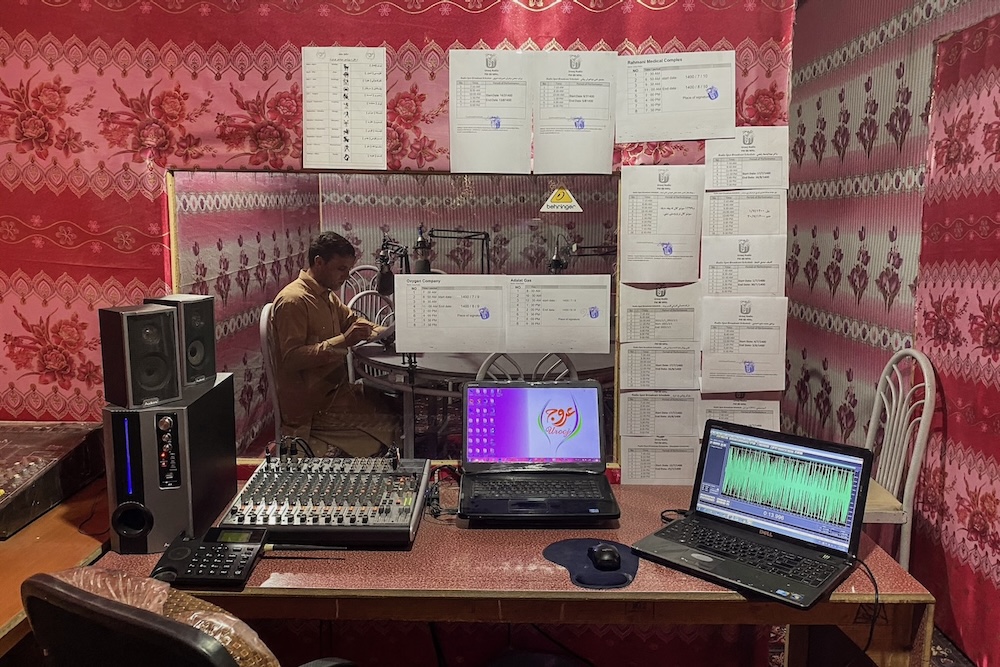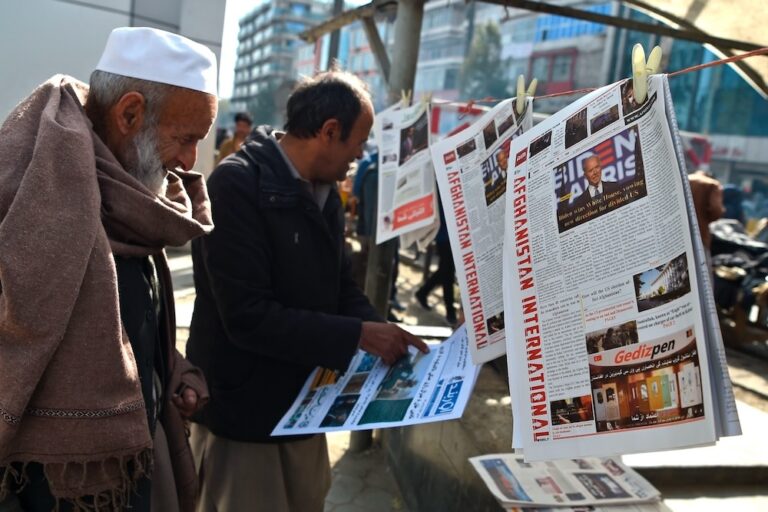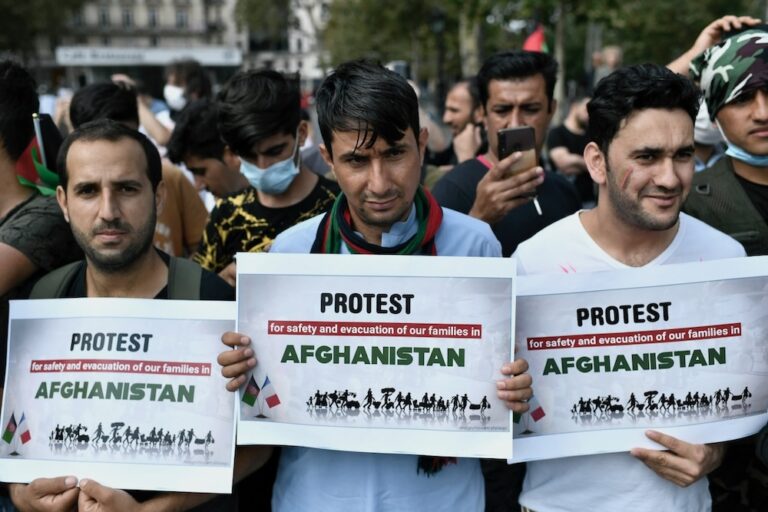Over the past year, at least 7 radio stations have been shut down because of the restrictive orders imposed by the Taliban.
This statement was originally published on afjc.media on 13 February 2025.
On the occasion of World Radio Day, the Afghanistan Journalists Center (AFJC) has announced a significant increase in restrictions on radio operations in Afghanistan, marking an unprecedented decline in media freedom. Over the past year, at least seven radio stations have been shut down either by direct order or through restrictive measures imposed by the de facto authorities, with several radio employees currently imprisoned.
World Radio Day was established by the United Nations Educational, Scientific and Cultural Organization (UNESCO) during its 36th General Conference in 2011, and the United Nations General Assembly endorsed the day in 2012. Celebrated each year on February 13, it commemorates the launch of the UN’s first radio broadcast in 1946 and serves as an opportunity to promote radio as a vital medium for information dissemination, cooperation among stations, and the safeguarding of access to information and freedom of expression. The theme for 2025, “Radio and Climate Change,” underscores the critical role of radio in addressing climate change issues that impact the future of our planet.
Despite growing access to the Internet and social media, radio remains a widely accessible medium in Afghanistan. However, following the Taliban’s return to power in August 2021, media freedom, particularly for radio, has faced severe constraints. While the ruling authorities have stated that the Media Law approved by the previous government remains in effect and are drafting amendments, they simultaneously impose directives and executive orders that contradict established media regulations.
AFJC’s findings reveal that in the past three years, the de facto authorities have issued at least 22 directives targeting media operations, disproportionately affecting radio stations. These directives include the revocation of work permits for women at National Radio, bans on broadcasting music or interviews with critics of the ruling administration, and intensified oversight by various government bodies, including the General Directorate of Intelligence (GDI) and the Ministry of Virtue and Vice. Such oversight has often resulted in threats, arrests of personnel, and the closure of stations.
Moreover, the findings indicate that journalists who defy these orders face harassment or imprisonment, while media outlets experience punitive actions, including bans on their operations. In the past year alone, three out of seven closed radio stations have not been permitted to reopen. Currently, at least six media employees, including three from two independent radio stations, are incarcerated.
The pressure on private radio stations has escalated beyond workplace segregation and bans on cross-gender interviews. In several provinces, radio officials have been instructed not to broadcast female voices or to restrict female employees to remote work, with additional prohibitions on women and girls participating in radio programs via phone. Furthermore, the de facto authorities are complicating the process for radio stations to renew their licenses, especially those managed by women, who are under both direct and indirect pressure to replace female staff with male counterparts. As commercial advertising revenue — the primary financial lifeline for radio stations — has sharply diminished, taxes imposed on these stations have increased.
In light of these alarming developments, AFJC urges the de facto authorities to reconsider the extralegal media guidelines that severely undermine media freedom. We call for the immediate release of imprisoned media personnel and the reopening of closed radio stations. AFJC implores the de facto authoroties to uphold and support the rights of media outlets and journalists in accordance with Afghanistan’s Media Law.



